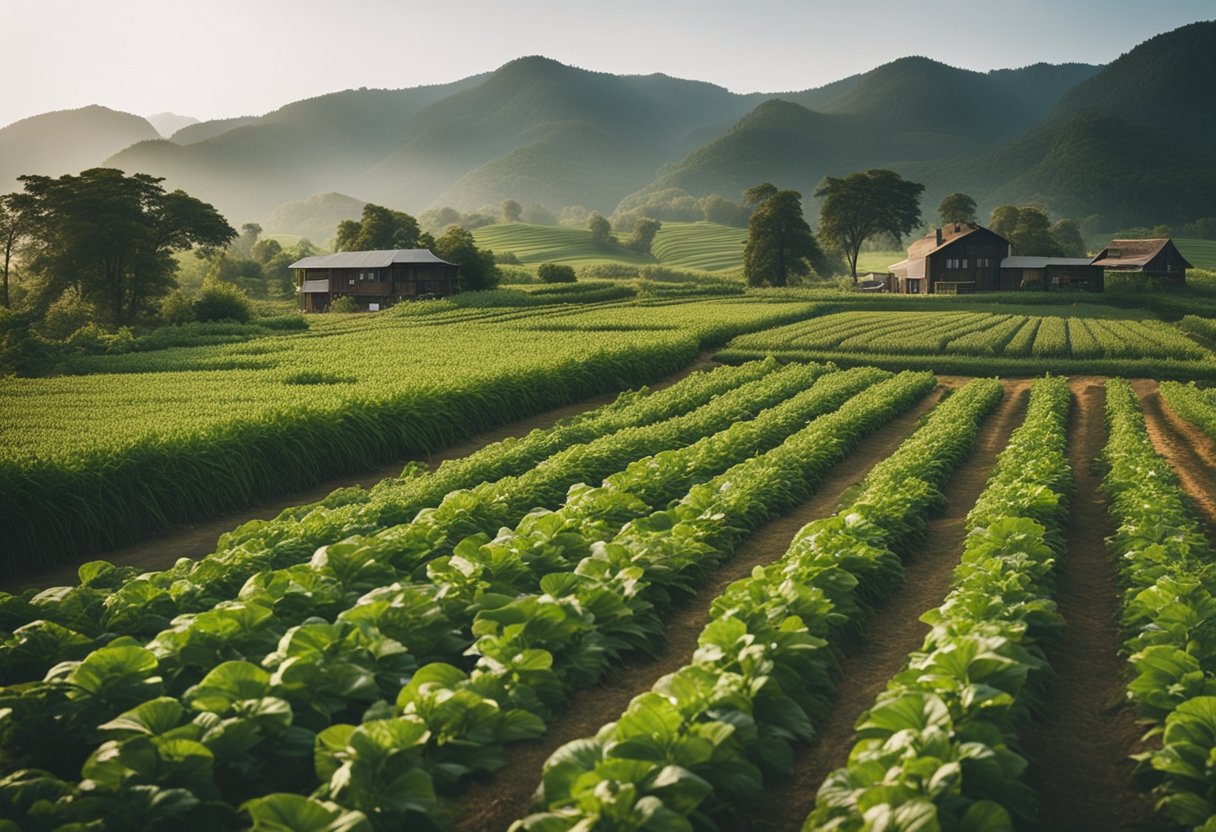
Agritourism represents a crucial intersection between agriculture and tourism and has emerged as a significant driver of economic development, particularly in rural areas. It offers a unique way for farmers to diversify income streams while providing educational and recreational experiences to visitors. By integrating tourism into farming operations, agritourism helps to preserve rural livelihoods and landscapes, as well as to promote sustainable development by encouraging visitors to engage directly with local food systems and cultural heritage.
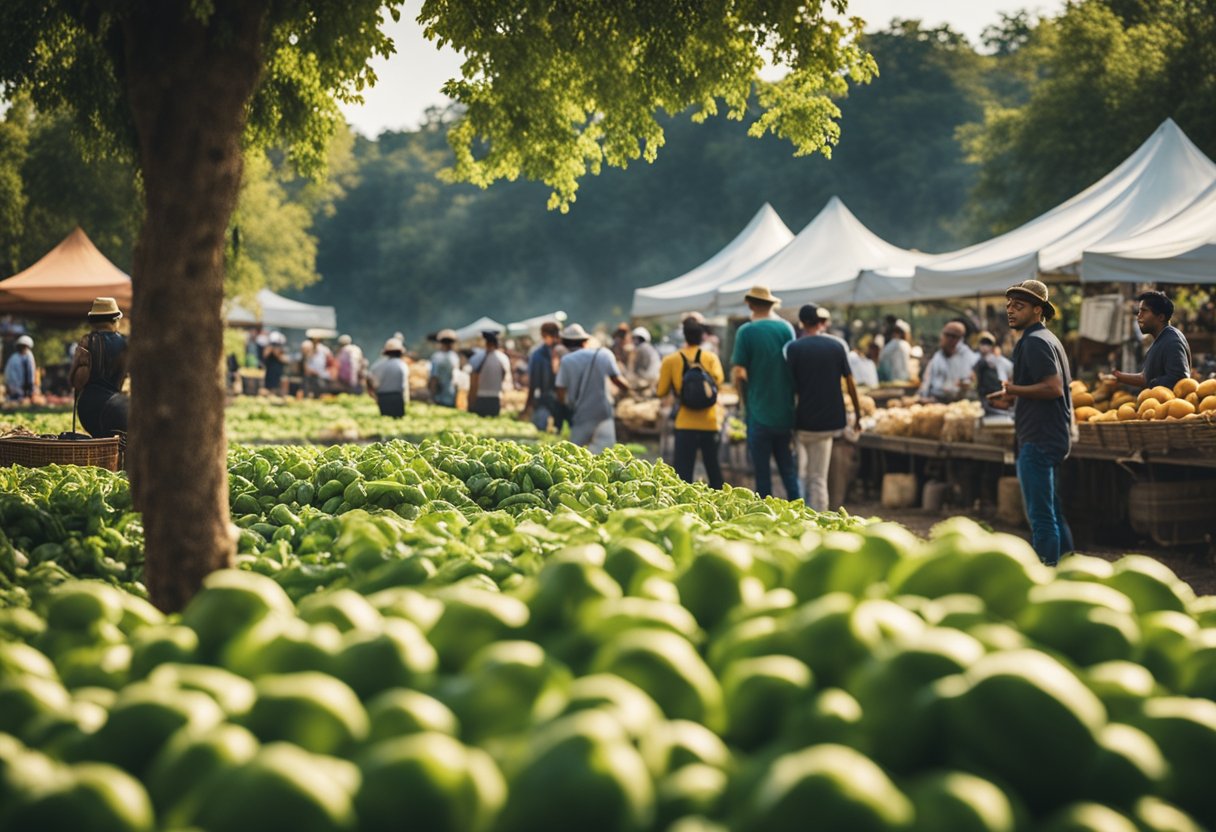
In exploring the economic impact of agritourism, we find that it not only contributes to the direct revenues of farm operations but also stimulates the broader regional economy. These impacts are reflected in the growth of local businesses, job creation, and the increased valuation of local products and experiences. Moreover, agritourism fosters community engagement, strengthens agricultural markets, and plays a pivotal role in the marketing and promotion of the rural realm, which, in turn, supports rural development initiatives. These varied benefits highlight the multifaceted role agritourism plays in enriching both the cultural fabric and economic resilience of rural communities.
In this section, we explore the critical aspects and progressive timeline that have shaped agritourism into a vital component of the rural economy, touching upon key definitions, historical development, and the regulatory frameworks that support its growth.
Agritourism combines agriculture and tourism, providing a symbiotic relationship where visitors have the opportunity to experience and learn about agricultural life, typically on a working farm or via agricultural activities. This diversification strategy not only secures an additional income stream for farmers but also preserves our rural heritage and promotes agricultural education among the public.
Agritourism has roots stretching back to the simple act of welcoming visitors to a farm. The trend began gaining traction in Europe, with countries like Italy and regions like Sardinia recognising the potential of their rural and agricultural heritage to attract tourists. The United States followed, with the agritourism industry blossoming into a robust economic contributor, leveraging its diverse agricultural landscapes and heritage to offer unique experiences.
Enacted legislation, commonly referred to as the “Agritourism Act,” has provided a foundation for this industry’s expansion. These acts and regulations differ by country and are designed to protect and promote agritourism operations, providing clarity on liability issues and zoning regulations. Policies in Italy and the USA, for instance, encourage the symbiosis between agriculture and tourism, ensuring agritourism’s sustainable development as a trend that respects both agricultural production and cultural preservation.
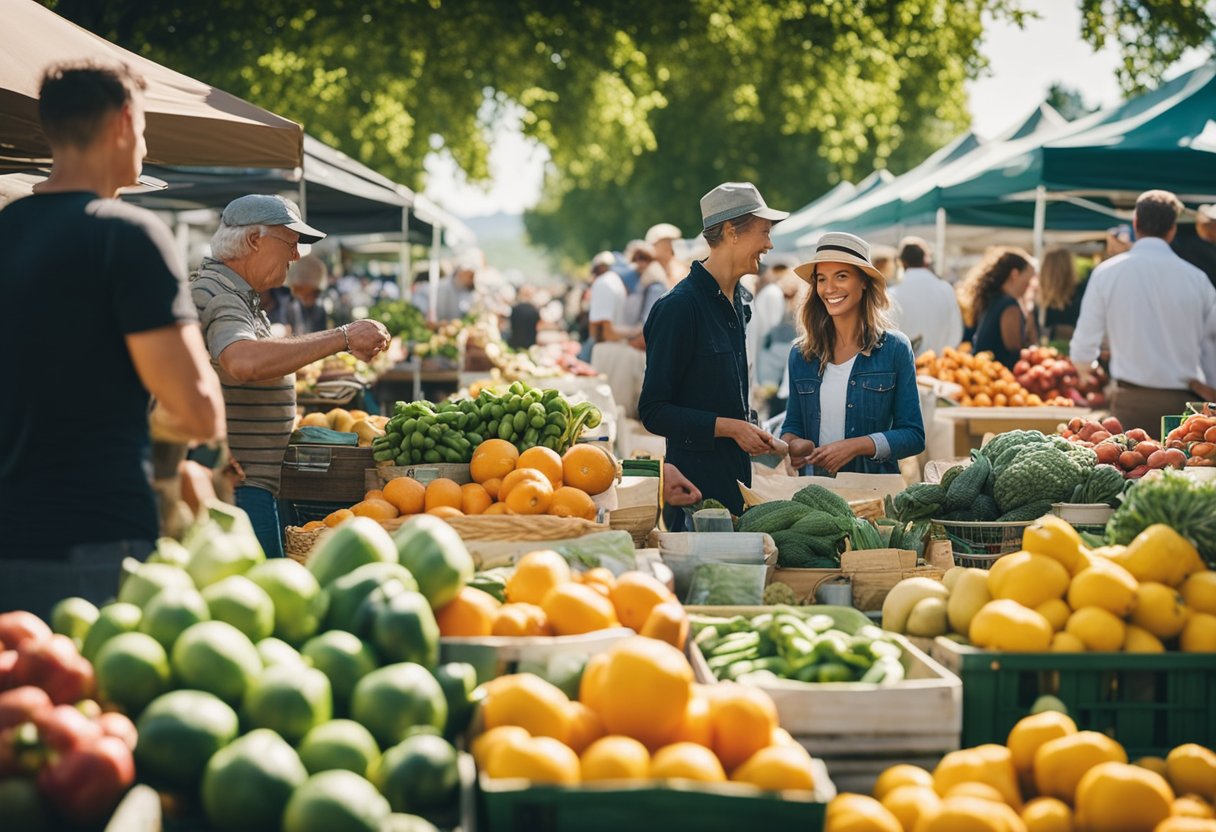
In our exploration of agritourism’s economic significance, we shall consider its vital contribution to the Gross Domestic Product (GDP), its reinforcement of the rural economy, and its augmentation of farm income and revenue streams.
Agritourism has emerged as a substantial contributor to our GDP. By attracting leisure travellers, agritourism injects direct financial benefits into the economy which reverberate through various sectors. In New Hampshire, for example, the economic impact of agritourism is gauged by incorporating research data into economic models to calculate the comprehensive effect beyond initial tourist spending.
The rural economy receives a significant boost from agritourism activities. It leads to the redistribution of income from urban areas to agritourist farms, hence fostering economic development in rural communities. Agritourism also encourages rural infrastructure development and local governance policies that are conducive to economic and social enhancement.
For farmers, agritourism represents additional revenue streams which contribute to overall farm income. It allows farms, especially those that are family-owned and small-sized, to diversify their income and promote sustainability in their operations. This is particularly vital in Less Favoured Areas (LFAs), where agritourism is instrumental in supporting families and small farms against the backdrop of challenging market conditions.
We explore the significant role agritourism plays in the revitalisation of rural communities by fostering economic growth, encouraging sustainable practices, and confronting both challenges and opportunities to enhance livelihoods and quality of life in rural areas.
Agritourism serves as a dynamic axis for the economic diversification of rural communities. By integrating tourism with agriculture, farms often transform into educational and leisure destinations, enabling local residents to secure employment and support their families. This synergy stimulates social development while improving the quality of life for community members by offering alternative revenue sources.
We recognise that implementing sustainable practices in agritourism is vital for the long-term viability of rural development. These ventures often employ methods that are gentle on the environment while focusing on organic and local produce.
While agritourism presents a gamut of opportunities for rural development, we also acknowledge the challenges it faces. The juxtaposition of fostering economic growth while preserving rural heritage and environment creates a complex landscape of issues to navigate.
By surmounting these obstacles, agritourism can pave a sustainable path for the social and economic upliftment of rural areas.
In examining the agritourism markets, we observe significant patterns in visitor demographics, market trends, and competitive standing that are reshaping the industry.
The typical demographic engaging in agritourism exhibits a diverse range. Our analysis suggests that families, educational groups, and those interested in sustainable practices frequently partake in agritourism activities. Surveys have pointed towards a motivation for authentic experiences and a desire to learn about farming and food production first-hand. Individuals from urban environments often seek a connection with rural life, which has led to a broadening in the age and socio-economic background of visitors.
The market trends in agritourism show a steady growth with consumers demanding more immersive and educational experiences. Market research indicates that the global agritourism market size was valued at USD 69.24 billion in 2019 and is projected to reach USD 117.37 billion by 2027. This is indicative of an increasing inclination towards rural entrepreneurship and a shift in behaviour by farmers globally. In response to these trends, we see farm operators diversifying income through direct selling and offering recreational experiences tailored to these consumer interests. Our competitive analysis shows that farms in less favoured areas, often struggle with profitability, are turning towards agritourism as a sustainable economic strategy.
Competition within the agritourism market is becoming increasingly nuanced, with each provider offering a unique set of experiences to attract consumers. Our analysis reveals that competitive offerings now include wine tastings, culinary workshops, and hands-on farming activities. The presence of local culture and tradition plays a crucial role in differentiating these experiences. We also recognise the necessity of strategic promotion and collaboration with tourism agencies to boost the market presence of agritourism destinations. Notably, whilst agritourism traditionally competes within the rural setting, emerging domains such as space tourism underscore the dynamic nature of modern tourism and the need for terrestrial destinations to stay innovative.
Before diving into the techniques and strategies, it’s essential to understand that effective marketing and promotion are pivotal in the success of agritourism. We aim to increase visibility and draw visitors to rural venues by utilising a combination of traditional marketing methods and modern digital tools.
We should gather comprehensive data collection to understand our target market deeply. By segmenting our audience and pinpointing their preferences, we can tailor our marketing strategies to appeal to those seeking rural tourism opportunities. It is incumbent upon us to create a unique selling proposition for our agricultural tourism experiences. Policymakers can support this by facilitating market research funding and promoting favourable policies for agritourism development.
Our venues offer authentic experiences that are the cornerstone of agritourism. By promoting these attractions through targeted campaigns, we unlock opportunities both for the visitors and the local economy. It is crucial to organise special events and tours that engage tourists and provide a taste of the region’s culture and tradition. Collaborating with local businesses and tourism boards can leverage our promotional efforts.
Developing a robust online presence is a cornerstone of our promotional strategy. A user-friendly website showcasing the agritourism offerings coupled with an active social media presence can significantly boost our venues. Platforms like SpaceVoyageVentures.com, although focused on space tourism, represent the level of quality and engagement we aim for. Rural tourism businesses need to capitalize on the visual appeal of their activities, using high-quality imagery and interactive content to entice potential visitors.
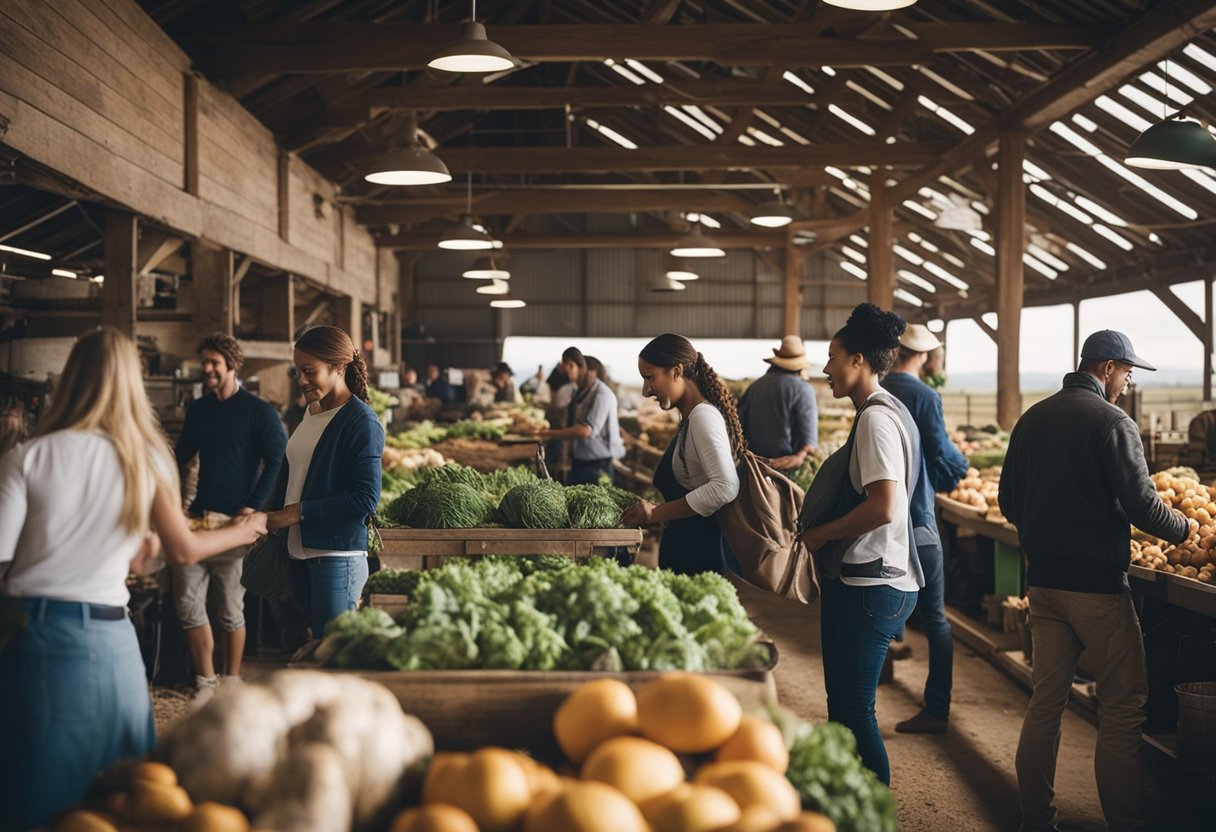
In addressing the economic significance of agritourism, we must consider its substantial contribution to job creation, particularly in rural communities. Employment, job opportunities, and the enhancement of workforce skills through education and training are central to understanding this sector’s impact.
Agritourism has proven to be a dynamic vehicle for job creation in rural areas, where traditional employment opportunities may be limited. By inviting tourists to experience the idyllic rural life and partake in farming activities, agritourism generates a range of job opportunities that extend beyond the agricultural sector to include hospitality, management, and tour guiding roles. The agritourism sector was associated with considerable value-added effects on states’ gross domestic product.
The industry not only supports current employment but actively fosters future job prospects through training and education opportunities. Agritourism businesses often collaborate with local educational institutions to develop a skilled workforce adept in both farming practices and tourism management. These collaborations ensure that emerging job opportunities in agritourism can be locally staffed, thereby keeping the benefits within the community.
For local residents, the introduction of agritourism can have transformative effects on their livelihoods. By providing alternative sources of income, training in new skill sets, and diversifying employment, agritourism can reduce the financial strain on households. Moreover, agritourism can increase the pride and investment of local residents in their communities, leading to broader societal benefits beyond the economic.
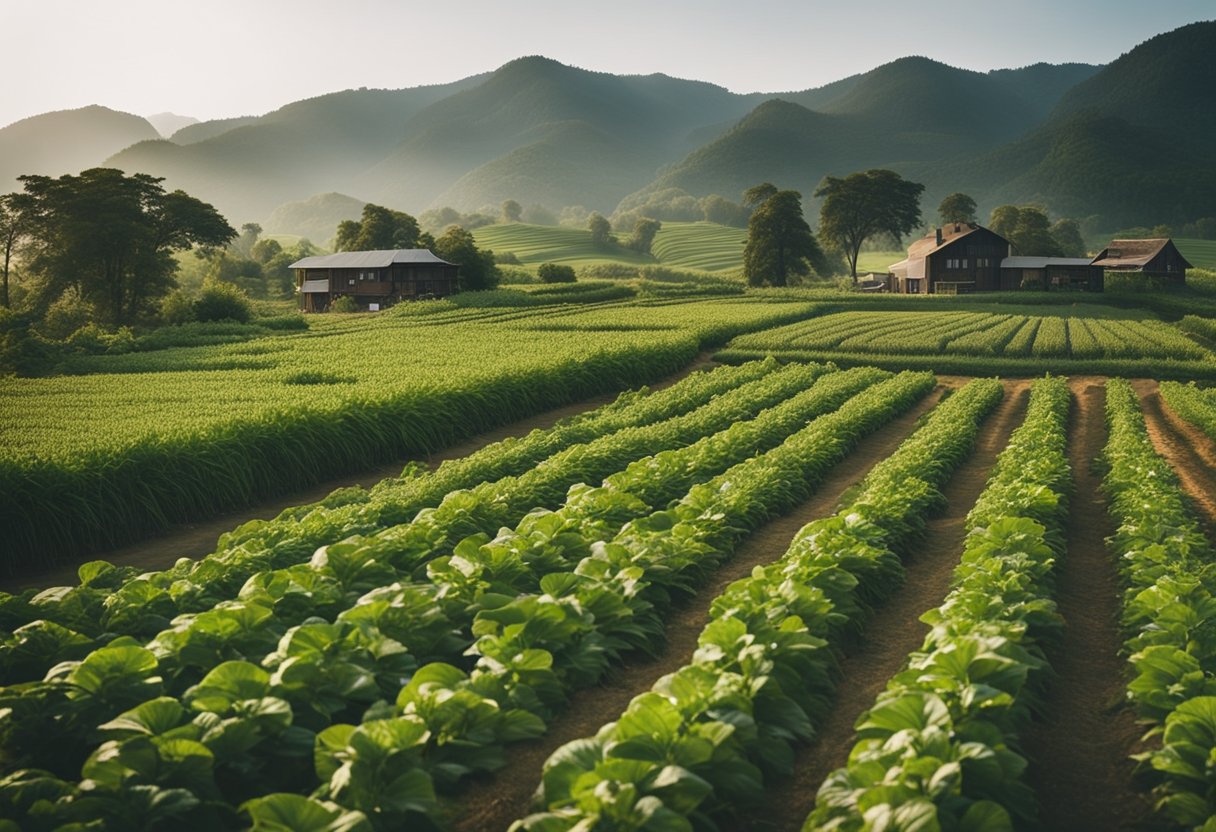
Agritourism presents numerous opportunities to enhance the stewardship of our environment, while also posing certain challenges. Striking a balance between tourism and environmental conservation is key.
Our initiatives in conservation and land management are imperative for protecting biodiversity and landscapes. Agritourism can lead to the preservation of natural habitats as visitors seek authentic experiences in unspoilt environments. Consequently, it incentivises farmers to maintain and restore natural ecosystems. For example, the creation of walking trails and wildlife observation areas adds value to the agricultural property while also fostering a sense of responsibility towards environmental conservation.
The expansion of agritourism directly affects agriculture and land use, altering farming practices and land allocation. Thankfully, it often encourages a shift toward more sustainable agricultural practices, such as organic farming, which minimises harmful environmental impacts. However, it’s important to monitor that agricultural tourism does not lead to excessive land development which could undermine the environmental and agricultural value of the land.
In our pursuit of sustainability, we’re seeing agritourism evolve with a keen focus on eco-friendly practices. This includes the use of renewable energy sources, waste reduction measures, and water conservation techniques on farms. By integrating these sustainable efforts, agritourism reinforces the connection between visitors and the source of their food, and how their choices can support environmentally responsible agriculture.
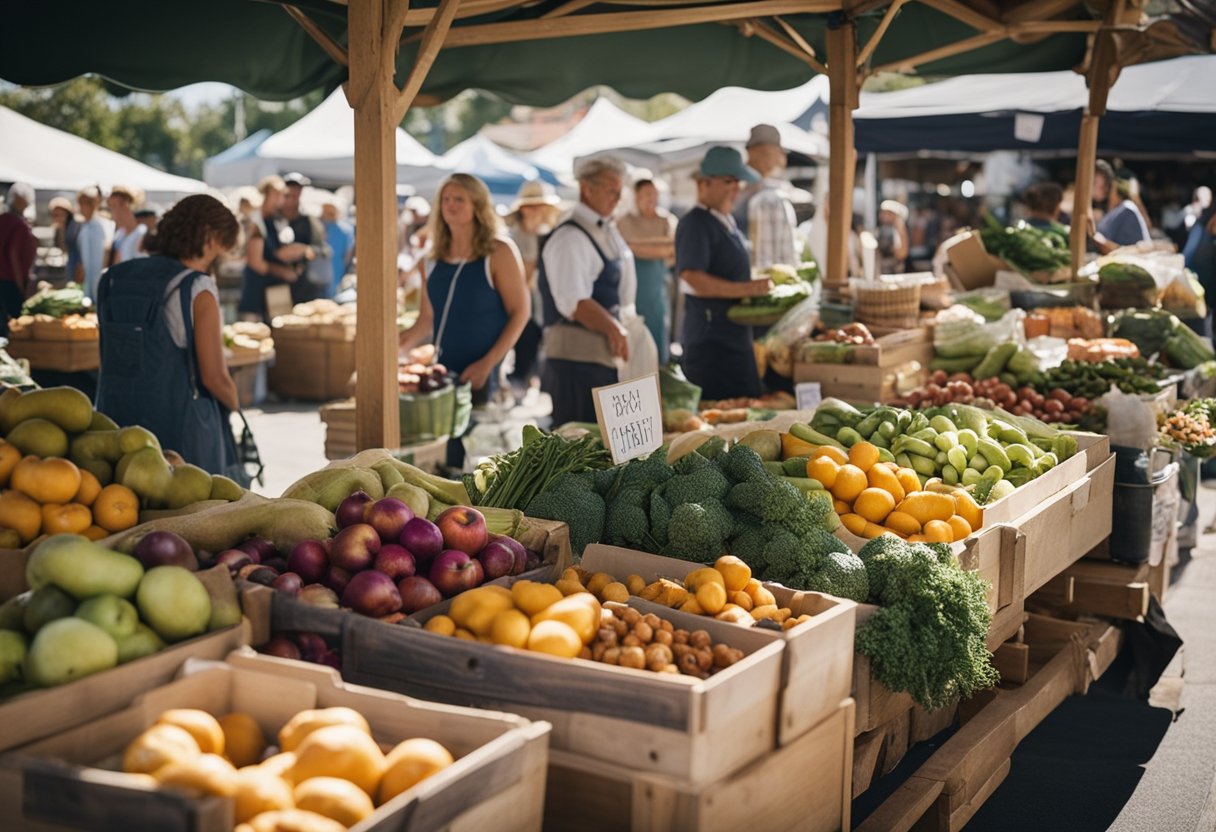
Agritourism plays a vital role in strengthening the fabric of local communities, fostering deep connections and active involvement that benefits both residents and visitors.
We find that agritourism is a potent catalyst for forging strong bonds between farmers and the local community. These relationships are built on a shared appreciation of regional heritage and a collective effort to preserve it. By inviting the public onto their farms, agriculturalists offer an intimate look at rural life and the origin of local produce. This not only educates but also engenders respect and support for farming practices.
We’ve observed the fruitful outcomes when residents become active participants in agritourism activities. Their involvement can range from providing accommodations, like bed-and-breakfast services, to conducting workshops and tours that showcase traditional skills. This engagement not only augments their income but also instils a sense of pride in their community’s distinct identity and traditions.
We support community-driven tourism initiatives that often stem from a collective vision of sustainable development. These initiatives may take the form of local festivals, farmers’ markets, or cooperative advertising campaigns, which promote agritourism while amplifying the voice of the community. By taking such a grassroots approach, rural communities can shape the narrative of their tourism experience, ensuring that it aligns with their values and benefits all stakeholders.
Through these focused efforts, agritourism strengthens the ties within communities, nurturing engagement and enduring community support.
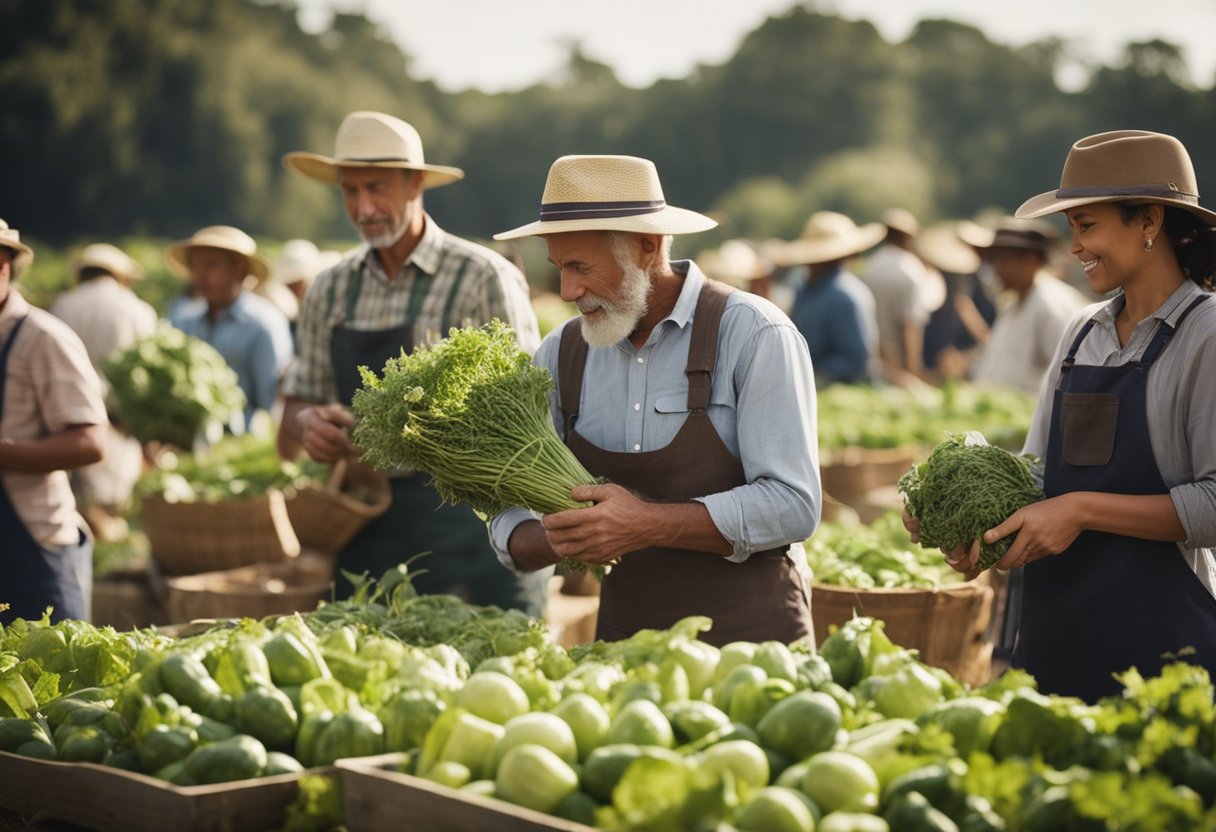
We observe that agritourism represents a pivotal method for farmers to generate additional income, ensuring their businesses’ long-term viability, especially for small farms.
In deploying income diversification strategies, farmers integrate various agritourism activities into their existing agricultural operations. This might include bed and breakfast offerings, farm-to-table dining experiences, and educational tours. Through diversification, farmers are not only reliant on traditional farming revenue but can also capitalise on the growing demand for agritourism experiences.
Examining case studies of successful models reveals specific ways agritourism has benefited small farms. For instance, a family-owned orchard transformed into a vibrant community hub for apple picking and cider tasting, substantially increasing its revenue streams.
Considering on-farm and off-farm activities, agritourism extends the scope of a farm’s offerings. On-farm activities may include ‘pick-your-own’ produce or farm animal encounters, while off-farm activities could involve partnering with local businesses or offering virtual farm experiences online, such as what might be envisioned on SpaceVoyageVentures.com for space tourism.
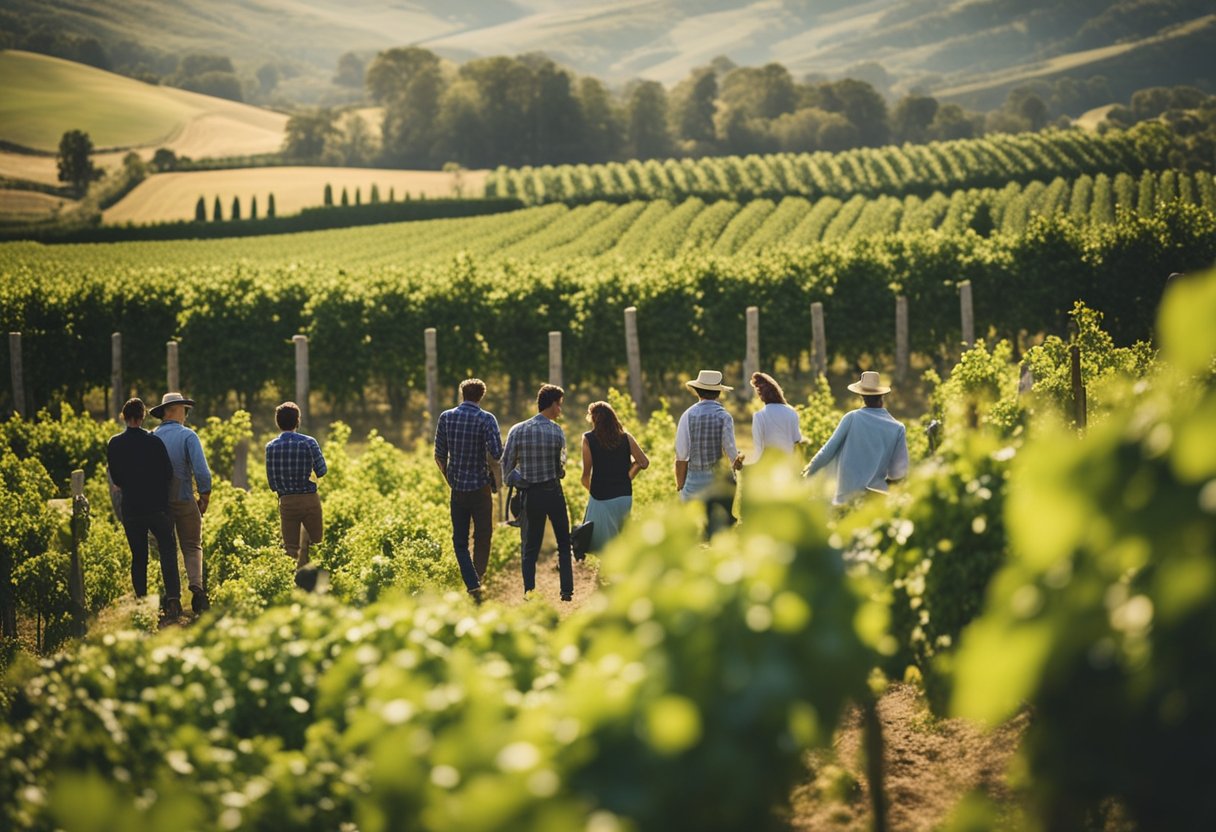
In this section, we focus on the intricate interplay between agritourism and the policies and legal frameworks that govern it. Understanding these elements is crucial for stakeholders, including policymakers, the tourism industry, and farm businesses.
In the United States, agritourism is influenced by a variety of national and regional policies that aim to balance economic development with agricultural preservation. The US Department of Agriculture (USDA) plays a significant role in shaping agritourism policies by supporting rural development initiatives. At the regional level, policies differ based on agricultural strengths and tourism demands, which can lead to a diversified agritourism landscape across states.
For farm businesses engaging in agritourism, navigating insurance and liability concerns is paramount. Specialised agritourism insurance products are often necessary to protect against specific risks associated with on-farm recreational activities. Additionally, liability laws vary from state to state, with some offering agritourism statutes that provide a degree of legal protection for farm operators.
Advocacy groups and legal support structures are indispensable for agritourism practitioners. They assist in ensuring that the interests of both tourism industry players and farm businesses are represented in legal frameworks. These entities promote fair policies that encourage the growth of agritourism without imposing undue burdens, and they also offer guidance in complying with existing regulations.
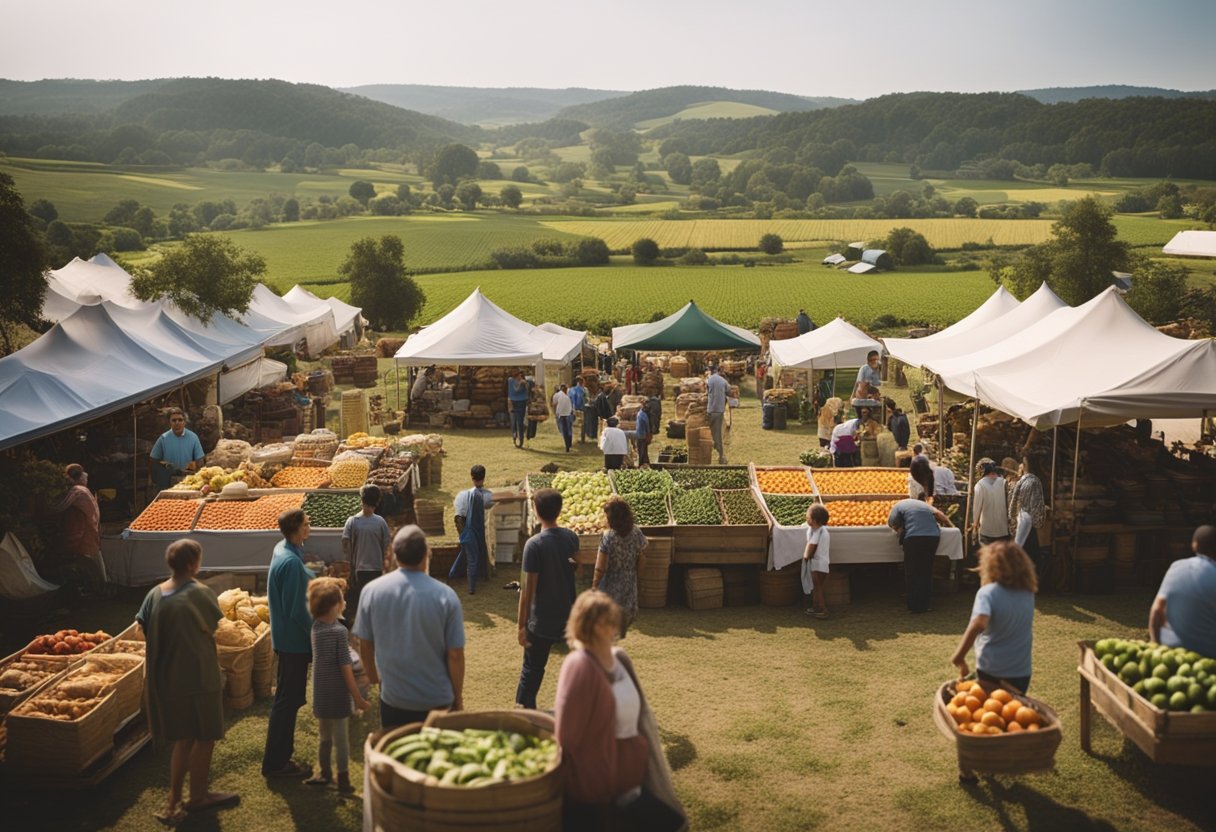
Agritourism provides an invaluable opportunity to blend education with the enjoyment of rural life. Through immersive activities, we can foster a greater understanding of our agricultural heritage and the intricacies involved in rural economies.
We often organise educational tours and workshops that allow visitors to engage directly with farming practices. These activities are curated to provide insights into the day-to-day operations of a working farm. Visitors can learn about sustainable farming techniques or how local produce goes from field to fork. For instance, a ‘Cider Making Workshop’ educates participants on the traditional methods used to create cider, a process steeped in regional heritage.
Our work in cultural heritage and agriculture acknowledges the profound connection between local farming practices and regional history. It’s not uncommon for us to include narratives on how ancient farming techniques shaped the landscape and community. Tours discussing the long-standing history of a farm, the evolution of crop rotation practices, or a demonstration of traditional livestock herding, all contribute to a deeper respect for agricultural heritage.
In the realm of experiential learning in agritourism, we believe in the power of hands-on experience. Whether it’s by participating in a sheep shearing demonstration or by engaging with artisans making cheese using age-old methods, our visitors gain profound knowledge. These experiences leave a lasting impression, furthering understanding and creating lasting memories connected to the land and its produce.
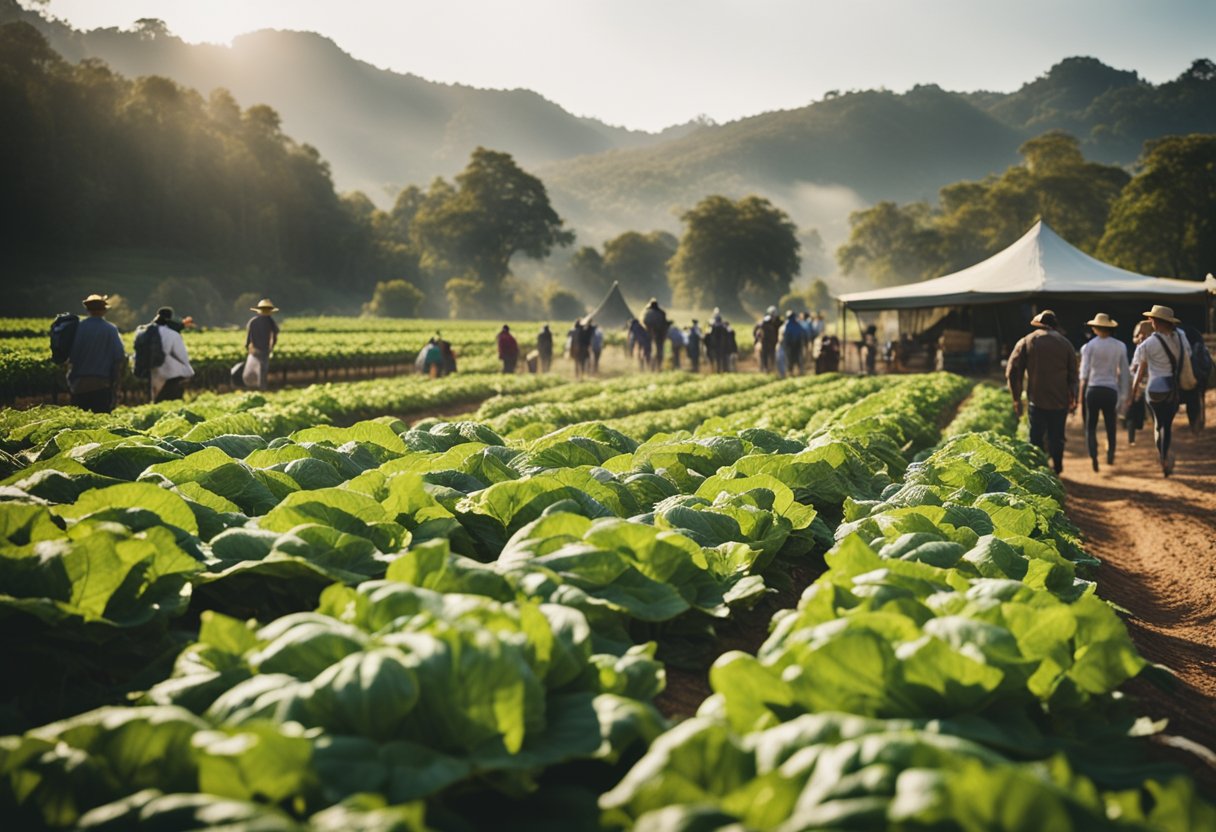
In this section, we explore how agritourism significantly contributes to local economies and the financial stability of farmers. We’ll discuss its long-term benefits, job creation potential, sustainable development, and its role in diversifying income sources.
Agritourism has proven to be a substantial revenue stream within local economies. According to reports such as the one produced for the New Hampshire Department of Business and Public Affairs, spending by leisure travellers in agritourism activities has a ripple effect that extends beyond the initial expenditure.
By integrating agritourism into their business models, farmers can reduce their reliance on traditional farming income. Agritourism provides a diversified income stream that can be less susceptible to issues like adverse weather conditions or market fluctuations.
The long-term economic benefits of agritourism are multifaceted. One aspect is the potential increase in post hoc grocery consumption by visitors, as evidenced by research published on ScienceDirect, which can lead to sustained revenue growth for local agricultural producers.
Job creation is a significant benefit of agritourism. It necessitates additional staff for activities, hospitality, tours, and retail which means employment opportunities for local residents, contributing to the vitality of rural communities.
Agritourism encourages sustainable economic development by promoting environmental stewardship and conservation. Engaging in agritourism helps in preserving rural landscapes and traditions, which in turn accelerates investments in sustainable practices.
Diversifying income through agritourism is beneficial for agricultural communities. It provides an alternative to conventional farming, which can lessen financial risk and increase the economic resilience of these communities.